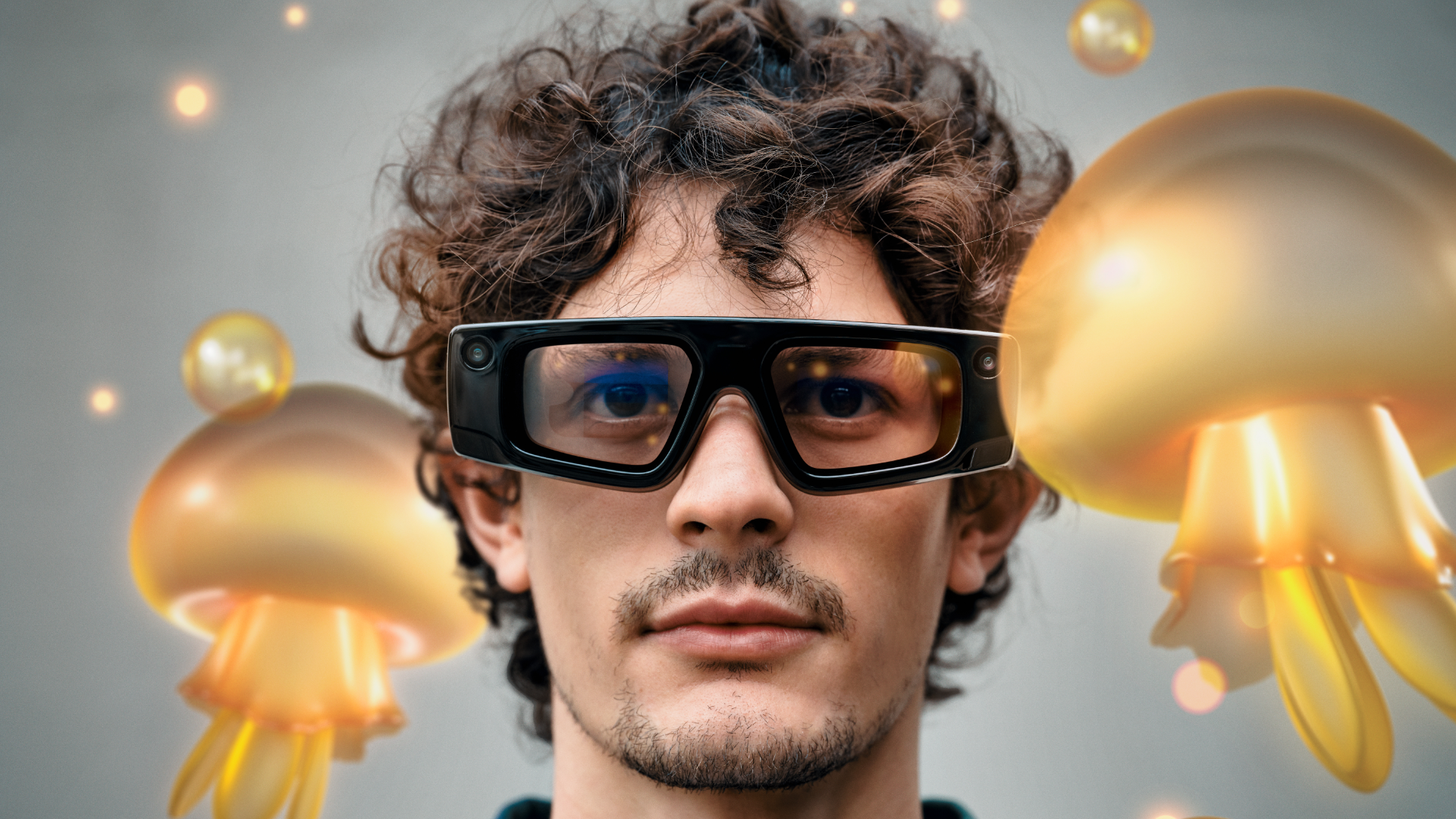Augmented reality is no longer just a futuristic concept reserved for tech shows. It is beginning to take root in the daily lives of people working in concrete sectors such as industry, health, logistics and training. Companies such as Google, Snap, XREAL and DigiLens are now developing much more mature AR glasses, designed to meet the practical needs of the field. These are solutions tailored for professionals, technicians, trainers and mobile teams, providing tools that will improve the way they work.
During the Google I/O 2025, google and Samsung launched a new prototype of AR glasses. They have not yet been given an official name, but they are already running on Android XR and incorporate The Gemini AI assistant, which can be controlled entirely by voice.
✅ On-site augmented training: a guided tour is displayed directly in the user's field of vision, providing real-time instructions for navigating the factory or construction site.
✅ Predictive maintenance: the AI scans components, detects anomalies and instantly offers solutions without the need to consult a multitude of manuals.
✅ Remote support: what you see through the glasses can be shared live with an expert via Meet or Zoom, saving a considerable amount of time.
These glasses are a promising tool for mobile and international teams thanks to their lightweight design, integration with Android applications, multilingual voice recognition and enhanced navigation capabilities.
%20(1).webp)
XREAL, already well known for its XREAL Air glasses, has unveiled Project Aura, a new AR headset developed in collaboration with Google. Running on Android XR and equipped with a Qualcomm processor, this model stands out for its lightness, making it ideal for prolonged use on the go.
✅ 3D visualisation on site: the ability to project an architectural or mechanical plan at actual size directly onto the site. There is no need for paper or tablets.
✅ Optimized logistics : In a warehouse, information is projected to help you follow the fastest path, locate products and save time on order preparation.
✅ Express decision : A site manager can consult their KPIs (performance, machine condition, etc.) in real time without putting down their tools.

The DigiLens ARGO glasses are designed for demanding industrial environments. Equipped with Crystal Waveguide technology, they offer over 85% transparency and a brightness of more than 3,500 nits, providing natural and accurate AR rendering.
✅ Factory quality control : Displaying templates or compliance standards enables real-time checks to be carried out without consulting physical documents.
✅ Collaborative remote work : With a 48MP camera and spatial audio from five microphones, they become a visual communication hub for technical teams.
✅ Interventions in risk areas : Their IP65, MIL-STD-810G and ANSI Z87.1 certifications make them ideal for use in demanding environments such as construction sites and ATEX zones.
Thanks to their ergonomic design and Wi-Fi 6E and Bluetooth 5.2 connectivity, they offer a stable and effective field solution.

The Meta Orion model clearly aims to stand out. Weighing barely 98 g, they use advanced technologies such as advanced waveguides and a silicon carbide retinal screen. In addition, the wristband sensor enables fluid and natural interaction.
Despite high manufacturing costs and constraints relating to external lighting, Meta shows clear potential in the B2B sector, particularly in advanced R&D, the automotive industry, and technical consultancy.

Although more limited, the latest Snap shows find their place in certain professions. They boast a simple, lightweight design and an easy-to-learn interface.
The cases where they can be extremely useful:
✅ In retail or event marketing, it is used to test and demonstrate immersive experiences in real time.
✅ This is used for quick simulations of avionic maintenance or medical procedures in professional training.
Snap Put on the lightness and an intuitive interface to seduce the professions of creation, pedagogy, or product demonstration.
✅ Vuzix remains a leading name in industrial AR thanks to the high quality of its optics. Its models are already being used in sectors such as logistics and pharmaceuticals.
✅ RealWear, It is the ultimate tool for technicians in the field. These super sturdy vocal glasses are made for working hands-free in harsh environments such as oil and gas, energy and construction. They are solid and reliable.
Today, AR glasses are not yet ready for widespread adoption. Cost, autonomy, brightness and clutter remain major obstacles. However, in the professional world, these limitations can present opportunities
where a consumer cannot justify spending several thousand euros, a company can do so by saving time, increasing security, or improving the quality of service. With accelerated training, easy maintenance and remote support, the return on investment is often rapid
and you don't have to wait for the most advanced models. Solutions that are already mature, such as those from RealWear and Vuzix, reliably meet the practical needs of the field.
AR glasses won't replace smartphones overnight. However, in 5 or 10 years' time, they could well transform the world of work. They are already starting to make a difference in factories, workshops, construction sites and hospitals. And with AI integration becoming increasingly common, we may well be at the beginning of an even faster adoption process.
💡 An idea in mind?
📩 Contact us for a co-design workshop or a personalized demo.